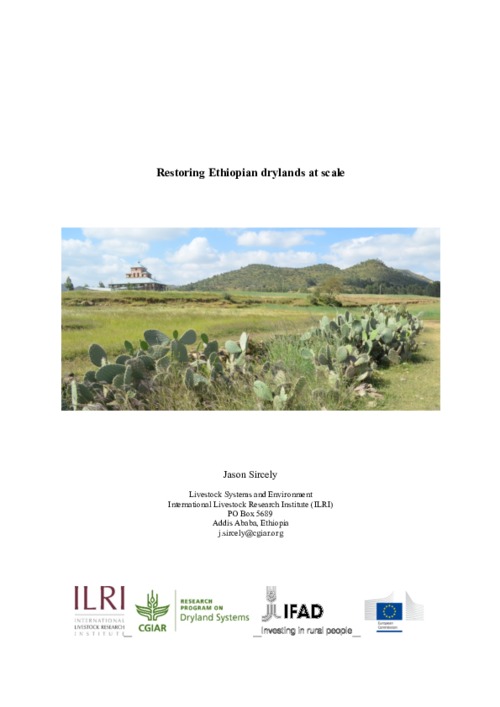Location
The International Center for Agricultural Research in the Dry Areas (ICARDA) was established in 1977. It is one of 15 such centers supported by the CGIAR. ICARDA’s founding mandate to promote agricultural development in the dry areas of developing countries remains highly relevant today.
ICARDA works with a tight focus on the problem-solving needs of resource-poor farmers, achieving this through the in-field delivery of its research outputs. Although global food production has increased by 20 per cent in the past decade, food insecurity and poverty remain widespread, while the natural resource base continues to decline.
International research centers such as ICARDA, which have helped drive previous improvements, continue to deliver new technologies to support sustainable growth in agriculture, and crucially, to work with a wide range of partners to accelerate the dissemination of these technologies.
ICARDA’s biggest strength is its staff – 600 highly skilled men and women from 32 countries. Our research and training activities cover crop improvement, water and land management, integrated crop-livestock-rangeland management, and climate change adaptation.
Other interventions include:
- Water harvesting - supplemental irrigation and water-saving irrigation techniques
- Conservation agriculture methods to reduce production costs and improve sustainability
- Diversification of production systems to high-value crops – horticulture, herbal and medicinal plants
- Integrated crop/rangeland/livestock production systems including non-traditional sources of livestock feed
- Empowerment of rural women – support and training for value-added products.
The ICARDA genebank holds over 135,000 accessions from over 110 countries: traditional varieties, improved germplasm, and a unique set of wild crop relatives. These include wheat, barley, oats and other cereals; food legumes such as faba bean, chickpea, lentil and field pea; forage crops, rangeland plants, and wild relatives of each of these species.
ICARDA’s research portfolio is part of a long-term strategic plan covering 2007 to 2016, focused on improving productivity, incomes and livelihoods among resource-poor households.
The strategy combines continuity with change – addressing current problems while expanding the focus to emerging challenges such as climate change and desertification.
We work closely with national agricultural research systems and government ministries. Over the years the Center has built a network of strong partnerships with national, regional and international institutions, universities, non-governmental organizations and ministries in the developing world and in industrialized countries with advanced research institutes.
THE ‘DRY AREAS’
Research and training activities cover the non-tropical dry areas globally, using West Asia, North Africa, Central Asia and the Caucasus as research platforms to develop, test, and scale-out new innovations and policy options.
Dry areas cover 41 per cent of the world’s land area and are home to one-third of the global population. About 16 per cent of this population lives in chronic poverty, particularly in marginal rainfed areas. The dry areas are challenged by rapid population growth, frequent droughts, high climatic variability, land degradation and desertification, and widespread poverty. The complex of relationships between these challenges has created a "Poverty Trap."
Members:
Resources
Displaying 206 - 210 of 431The effect of grazing exclusion on vegetation characteristics and plant community structure in arid lowland pastures
Rangelands are the mainstay of pastoral livelihoods worldwide. Within rangelands, there are landscape depressions or lowlands characterized by high production potentials with their unique edaphic and hydrologic properties. The purpose of this ongoing research is to evaluate the effect of grazing exclusion on the vegetation characteristics and plant community structure in the arid lowland pastoral ecosystems. Plots were randomly identified within two distinct lowlands in Majidya and Sabha, in the Jordanian Badia.
Chapter 21: Economics of Land Degradation and Improvement in Uzbekistan
Land degradation is a major challenge for agricultural and rural development
in Uzbekistan. Our research findings indicate that the costs of land
degradation in Uzbekistan are substantial; reaching about 0.85 billion USD annually
resulting from the loss of valuable land ecosystem services due to land use and
land cover changes alone between 2001 and 2009. On the other hand, economic
simulations also show that the returns from actions to address land degradation can
be four times higher their costs over a 30-year planning horizon, i.e. every dollar
Overlooked benefits and services of grasslands to support policy reform
Despite their ecological, economic and social importance, Mediterranean grasslands continue to receive limited scientific, political and media attention. Grasslands are typically viewed as underutilized space, able to be transformed into more “valuable” land by placing it under cultivation, transforming it into forest land and/or privatizing it. This paper synthesizes a number of pertinent issues in relation to social and economic systems on grasslands within the southern Mediterranean region.
Restoring Ethiopian drylands at scale
The goals of this review are to: (i) identify options with proven success and high potential for up-scaling in Ethiopian drylands, (ii) analyze factors underlying relative success in different agro-ecologies and under different institutional conditions, and (iii) assess options that may have high potential in areas and systems without well proven successful options.
Community Participation in Decentralized Management of Natural Resources in the Southern Region of Mali
Decentralized governance of natural resources is considered one of the key strategies for promoting sustainable
management of natural resources at local level. Effective decentralized natural resource management requires
strong local natural resource institutions. Therefore, strengthening local institutions governing the management
of natural resources is one of the core principles of decentralization reforms in Francophone West Africa
countries. This study assessed the existing local institutions (rules, norms and or local conventions) governing







